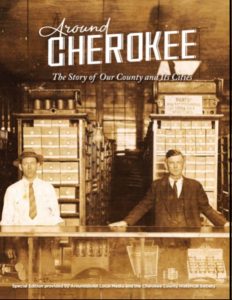
The Joseph E. Brown who returned to Georgia after incarceration in Washington, D.C., had abandoned Georgia’s past and was focused on its future. (If you missed Part 1 last month, read it here.) At the end of June 1865, he gave a farewell address that in part urged the people of Georgia to accept the results and outcome of the Civil War, including the abolition of slavery as he had, and to fully support President Andrew Johnson, a man whom he had come to admire.
Thereafter, Brown cooperated fully with the provincial governor of Georgia, assigned by President Johnson. In September, Brown received a full pardon and amnesty for any and all offenses committed during the war, with a few conditions that he readily accepted. Brown even switched to the Republican Party, which was quite unpopular in Georgia, so he could set to work supporting Reconstruction efforts. Already wealthy, his active involvement in the reconstruction and industrialization of the state’s economy offered numerous opportunities to prosper further. By 1868, he was appointed as chief justice of the Georgia Supreme Court, a position he resigned from in 1870, as it became increasingly clear that conflicts of interest between his business interests and the position on the court could be exploited by his opponents.
President Johnson would serve only one term, as Ulysses Grant won the Republican nomination and was elected President in 1869, and would serve two terms. This change effectively ended any affiliation Brown had with the party, as his loyalty was really to Johnson. By 1872, Brown had returned to the Democratic Party, which dominated state politics. By 1880, he was a U.S. senator, where he served for a decade. At his death in 1894, Brown was thought to be one of the wealthiest men in Georgia.
Brown’s legacy is a challenging one to define because, to modern eyes and attitudes, he appears as a “changed man” several times in his life. We live in an age where either admitting error or changing direction in any public service or political role is vilified rather than respected. Brown was above all pragmatic; I believe he took positions primarily based upon what he thought would bring economic prosperity to Georgia, its residents and himself. Prior to the Civil War, he believed abolition of slavery would seriously damage the state’s economy, so he opposed it. After the war, he was happy to switch parties in order to industrialize Georgia, and bring it back into the Union, in hopes of returning economic prosperity.
After 1865, Brown considered African Americans full citizens; he was on record supporting equality after the war and favoring their education, “so they know the rights they’ve been afforded.” At the same time, his promotion of the convict lease program and his widespread use of convict labor for his own profit — which has been characterized as slavery under a different name — make some people question if his personal beliefs had changed or if he simply was accepting the new reality without really agreeing with it.
So, we find ourselves back to Robert Toombs’ question: “Who the devil is Joe Brown?” Brown’s detractors often see him as a man driven by political expediency. This is a hard case to make given just how unpopular he was with his political peers. His supporters often saw him as a man who consistently sought the best for his people. This is an equally hard case to make given his decision to support secession in 1861, and its impact on Georgians. A populist does what the people want, whereas an idealist does what he believes is right, and a loyalist does what his party tells him. However, a populist doesn’t take the highly unpopular positions Brown took over the years, a loyalist doesn’t change party affiliations twice, and an idealist doesn’t admit “on the record” that he was wrong. As such, I don’t think Brown was any of these.
He was, I think, a pragmatist; he did what was practical, and Cherokee County and Georgia owes much to his pragmatism. Joseph Parks, professor emeritus at the University of Georgia, wrote an extensive history of Brown, and I think he captures Joseph E. Brown’s real legacy when he describes him as “a man with few friends, but many followers.”
– The Wanderer has been a resident of Cherokee County for nearly 20 years, and constantly is learning about his community on daily walks, which totaled a little more than 2,000 miles in 2022. Send questions or comments to wanderingga@gmail.com.

<!–
–>






